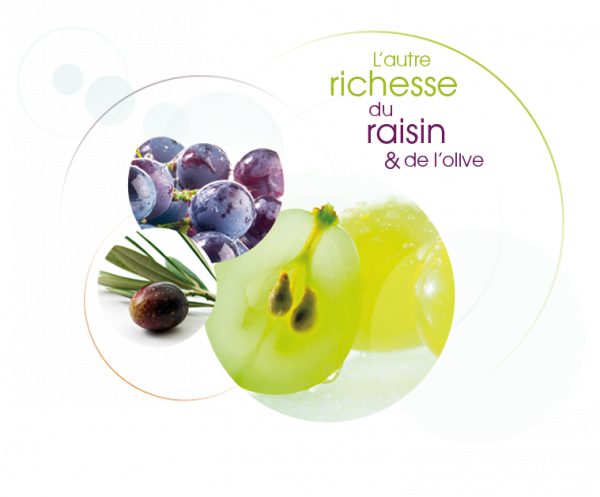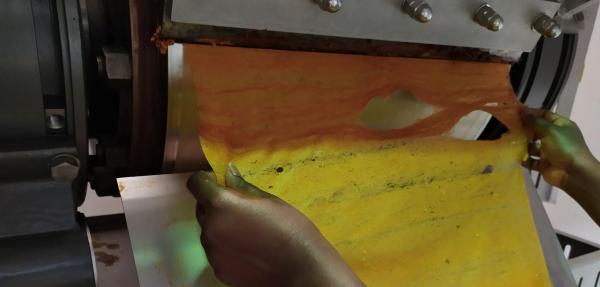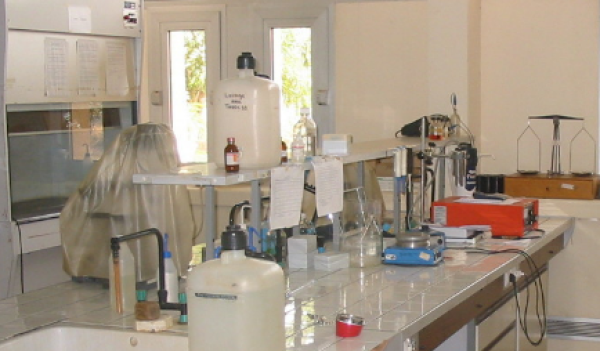Process study / engineering - Food and agrifood technology
- Home
- Work with us
- Cirad'Innov solutions
- Products and services
- Energy-efficient small-scale flash dryers for cassava processing
Energy-efficient small-scale flash dryers for cassava processing

©Luis Alejandro Taborda Andrade, séchoir flash
An equipment to solve food-processing challenges
At the crossroads of food sovereignty and the increase of nutritional needs, particularly in the tropical and Mediterranean regions, small production units have to improve their productivity, the quality of their products as well as their economic and environmental performances to serve local markets and sub-regions. Tropical starchy root crops and tubers – cassava, sweet potato, yam and taro (dasheen) –, or "RTs", play a vital role in food security for populations in tropical zones, where they are widely consumed, against a backdrop of population growth and rapid urbanization, particularly in Africa. Sun drying, although it does not need energy, increases the risk of contamination by fungi and dust, with a potential impact on human’s health. Current flash dryers meet processors’ productivity and quality challenges, but in many cases are oversized for the quantities of roots available locally and for small producers’ capacities, thus impacting their economic profitability. Indeed, large productions produce between 8 and 10 tons per hour, while small-scale productions target between 250 and 500 kg per hour, with much lower production areas and energy requirements.
Adapting these systems as accurately as possible to agri-food SMEs’ realities, would provide a better return on investment with a sustainable cost/energy saving ratio. If the components of the equipment are generally the same from one model to another, it is nevertheless necessary to take into account a certain number of parameters, which are studied on a case-by-case basis. This process ensures the success of the installation and the transfer of know-how to unit production workers. Our expertise with our partners is part of a three-way agreement with the production unit and the equipment manufacturer
A flash dryer prototype is already available and functional on the technological platform of FIIRO (Federal Institute of Industrial Research, Oshodi) in Lagos, Nigeria. It has been configured to transform cassava into flour or starch. It has a drying capacity ranging from 50 to 150 kg/hour and allows different parameters to be tested. Thanks to its sensors, the prototype allows to monitor the temperature along the tube, calculate the air velocity, relative humidity of the air, starch mass flowrate. Although these systems have been tested mainly on cassava, the matrices can be readjusted to other types of roots and tubers.
A resized tailor-made and efficient flash dryer
To develop these resized flash dryer systems, our expertise is based on a number of key success factors and:
- takes into account the production environment and infrastructure to ensure compatibility of equipment components;
- ensures the calculation of key parameters according to the type and specificity of the raw material, the volumes and the temperature that the plant can potentially generate;
- checks the specifications drawn up by the equipment manufacturer;
- answers any questions in our field of expertise during the project;
- provides a control of the parameters at the end of the installation;;
- reduces energy need by at least 30 %* ;
- optimizes production costs by 10 to 15 % compared to current models on the market* ;
- increases production capacity by up to 50 %* ;
- improves the profitability of the unit between 8 and 10 %* ;
*results of tests carried out with production units in the Democratic Republic of Congo (DRC).
The expertise is based on the skills of recognized technical and scientific centers that can be mobilized on international missions, particularly in the tropical and Mediterranean regions where they are already supporting stakeholders in the food processing industry:
- FIIRO in Nigeria
- IITA in Nigeria and DR Congo
- CIRAD in France
- CIAT in Colombia
The limits of the expertise: The quality of the expertise is based on the accuracy of the information provided by the production unit and the equipment manufacturer, as well as on compliance with the specifications established for the production of the equipment, and especially the quality of the components. Thus, the support is limited to giving ‘expert advice’, mainly upstream of the project, and does not include participation in the construction of the equipment on site. Responsibility for project management remains with the producer and equipment manufacturer. At the end of the project, an equipment control, led by one of the expert institutes takes place upon final delivery, with a training session in setting up the new installation.
Make cassava processed products accessible
Without economic profitability, a production company cannot survive. Given the multiplicity of consumption and supply areas, the role of small units is essential for feeding communities and producing value in the agricultural and processing sectors. Our common objective with all the partners is to support these units by facilitating the value chain from field to plate and enabling them to offer a quality and affordable product.
Resized flash dryer for cassava processing companies
Whether to improve the performance of existing equipment or to acquire a new production line, processors of cassava starch or flour can contact our experts. If you are already working with an equipment manufacturer, you can support your technical partner in drawing up or refining his specifications through our expertise. Otherwise, we can mobilize, depending on the region, technical partners already experienced in the manufacture of resized flash dryers. At the end of the project, your company benefits from training of technical agents to use the equipment and adapt drying parameters to season and the quality of the fresh raw material at the input and to the target specifications of the dried product at the output.
Know-how for food industry equipment manufacturers
With a growing market, the transfer of skills on this type of small-scale equipment is an advantage to face the competition of imported flour products by international manufacturers who have capitalized on drying systems dedicated to large industries. To acquire control of the parameters and be able to provide training for the operators of the production units, we recommend expert support for four to five implementation projects.
Supporting programs for the agri-food industrial sector in developing countries
Promoting the adoption of this energy-efficient technology will contribute to the sustainable expansion of cassava processing industries, particularly in the context of population growth by 2050, which will necessarily lead to a strong increase in the production and processing of cassava. Within the framework of support programs for the industrialization of certain countries or territories, our teams are available to accompany donors, NGO and governments, proposing specific coherent actions or participating in the technical implementation with beneficiaries of these programs.
- FIIRO is the idea of an economic mission sent to Nigeria in 1953 by the World Bank. With a broad mandate of accelerating industrialization in Nigeria, FIIRO has over the years, developed technologies that promote entrepreneurship development.
- The International Institute of Tropical Agriculture (IITA) is a non-profit institution
that generates agricultural innovations to meet Africa’s most pressing challenges of hunger,
malnutrition, poverty, and natural resource degradation.
- The Alliance of Bioversity and CIAT (International Center for Tropical Agriculture) works in collaboration with hundreds of partners to help developing countries make farming more competitive, profitable, and resilient through smarter, more sustainable natural resource management. We help policymakers, scientists, and farmers respond to some of the most pressing challenges of our time, including food insecurity and malnutrition, climate change, and environmental degradation.
- CIRAD is the French agricultural research and international cooperation organization working for the sustainable development of tropical and Mediterranean regions. Among the research units, QualiSud is specialized in the field of food processing. Its activities range from the post-harvest development process of food to appraisal of sensory quality in the mouth, to its nutritional quality, its health benefit, its harmlessness and its technological properties. The paths of optimization of existing technologies and the design of new food processes are both studied within the unit.
References and intellectual property
Publications
Chapuis Arnaud, Lancement Charlène, Giraldo Francisco, Precoppe Marcelo, Moreno Martin A., Dufour Dominique, Tran Thierry. 2022. Extensive experimental validation of a model for pneumatic drying of cassava starch. Drying Technology, 15 p.
https://doi.org/10.1080/07373937.2022.2087668
Ojide Makuachukwu Gabriel, Adegbite Suraju Adegbite, Tran Thierry, Taborda Luis Alejandro, Chapuis Arnaud, Lukombo Simon Singi, Totin Edmond, Sartas Murat, Schut Marc, Becerra López-Lavalle Luis Agusto, Dufour Dominique, Abass Adebayo. 2022. Processors' experience in the use of flash dryer for Cassava-derived products in Nigeria. Frontiers in Sustainable Food Systems, 5:771639, 15 p.
https://doi.org/10.3389/fsufs.2021.771639
Tran Thierry, Abass Adebayo, Taborda Andrade Luis Alejandro, Chapuis Arnaud, Precoppe Marcelo, Adinsi Laurent, Bouniol Alexandre, Ojide Makuachukwu Gabriel, Adegbite Suraju Adeyemi, Lukombo Simon Singi, Sartas Murat, Teeken Béla, Fotso-Kuate Apollin, Ndjouenkeu Robert, Moreno Martin A., Belalcazar John, Becerra López-Lavalle Luis Agusto, Dufour Dominique. 2022. Cost-effective cassava processing: Case study of small-scale flas-dryer reengineering. In : Root, tuber and banana food systeminnovations. Value creation for inclusive outcomes. Thiele Graham (ed.), Friedman Michael (ed.), Campos Hugo (ed.), Polar Vivian (ed.), Bentley Jeffery W. (ed.). Cham : Springer, 105-143. ISBN 978-3-030-92024-1
https://doi.org/10.1007/978-3-030-92022-7_4
Taborda A Luis, Chapuis Arnaud, Lukombo Simon Singi, Adegbite Suraju Adeyemi, Ojide Makuachukwu Gabriel, Totin Edmond, Abass Adebayo, Sartas Murat, Schut Marc, Becerra López-Lavalle Luis Agusto, Dufour Dominique, Tran Thierry. 2021. Scaling flash drying of cassava starch and flour at small scale. PHT 003. In : Book of Abstracts - The 14th symposium of the International Society of Tropical Root Crops Africa Branch (ISTRC-AB). International Society for Tropical Root Crops-Africa Branch. Lusaka : ISTRC-AB, Résumé, 2 p. Symposium of the international society of tropical root crops – Africa Branch (ISTRC-AB)). 14, Lusaka, Zambie, 20 Septembre 2021/24 Septembre 2021.
https://istrc-ab.org/14th-symposium-of-the-istrc-ab-zambia-2021/
Chapuis Arnaud, Tran Thierry, Giraldo Cuero Fancisco Javier, Moreno Santander Martín Alonso, Precoppe Marcelo, Moreno Alzate L., Pallet Hugo, Belalcazar John, Dufour Dominique. 2018. Development and trials of a small-capacity pilot flash dryer for cassava-derived products. . Cali : CIAT, Résumé, 1 p. Triennial Symposium of International Society for Tropical Root Crop (ISTRC). 18, Cali, Colombie, 22 Octobre 2018/25 Octobre 2018.



























